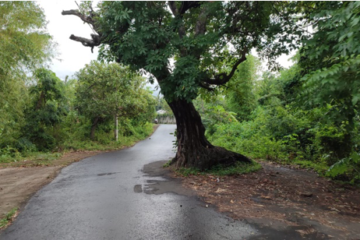A Call for Conversations

By Whitney A. Bauman and Kocku von Stuckrad
This new year emerges out of a planetary context that is facing many entangled and wicked problems. We continue to see the effects of increasing global temperatures, including more extreme weather events, geological events, and social and psychological events. The number of so-called climate refugees is increasing every year, as the psychological effects of climate depression and anxiety become impossible to address. These climate change related events are also exacerbating geo-political tensions: as extreme drought, flooding from rising waters and stronger storms, and devastating earthquakes and volcanic eruptions force more people to flee their home places, who takes in these refugees and how they are treated are increasingly a political flashpoint in national politics the world over.
One of the more problematic outcomes of these increasingly difficult situations is the erosion of spaces for public discourse, for democratic politics. Philosopher Hannah Arendt argued that the polis, space of public discourse, is not a place of identitarian ideologies, where each side goes in to battle the other and hope for a ‘winner takes all’ or ‘might makes right’ outcome. This is not democracy, in fact it is one of many steps along the way to totalitarianism. For Arendt, rather, the polis is a place to come together and critically engage the multiple perspectives that make up a given public, to be willing to be changed by others’ perspectives, and then to come to decisions together that might not have been a possibility or thought possible prior to having such dialogue.
Currently, the political situation in many nation-states, including but not limited to The United States, Russia, China, The Netherlands, Argentina, and Israel, is one of polarization and erosion of the spaces for dialogue. At the political level, the binary ideological battles just seem to be the norm. At an educational level, there are more and more attempts to police freedom of expression and critical learning at the primary, secondary, and university levels, which means that the ability to have these open spaces of exploration and dialogue in the classroom is fading. Finally, at the religious/spiritual level, religious nationalisms and religious fundamentalisms are on the rise in many places, while those who see religion as a problem become more and more fundamentalist in their atheist perspectives.
Our main goal at Counterpoint: Navigating Knowledge, since its founding in 2018, has been to provide spaces where multiple perspectives from multiple peoples and places can come together and critically think about complex issues, especially as they pertain to globalization and climate change. We do this through in-person and online “Counterpoint Conversations” and through our regular blog posts. As we begin this new calendar year, we also seek what Rebecca Solnit calls “hope in the dark.” We cannot run away from our entanglement with the rest of the planetary community and thus the only way forward is with, in, and through the dark times and planetary traumas we face.
With this in mind, we want to use this opportunity to welcome each and every one of you to submit a blog to us for consideration. Through these blogs, we hope to create spaces that support the healing, critical, and complex conversations required of any democracy, and much more of a planetary democracy. We invite you to submit a single blog, a series of 3-4 blogs on a common theme from different authors that you curate, or even a longer talking paper or essay that we could post on the Counterpoint website and provide space for comments and conversation from the Counterpoint community. You will find the details of the various publications here. Please share this with other friends and colleagues who you think might be interested as well.
If you have any questions at all, please don’t hesitate to contact us at [email protected]. Thank you for your consideration.
Sincerely,
Whitney A. Bauman and Kocku von Stuckrad
Co-Directors, Counterpoint: Navigating Knowledge
Photo credit: © Natalya Vaitkevich,, free download from Pexels.



0 Comments